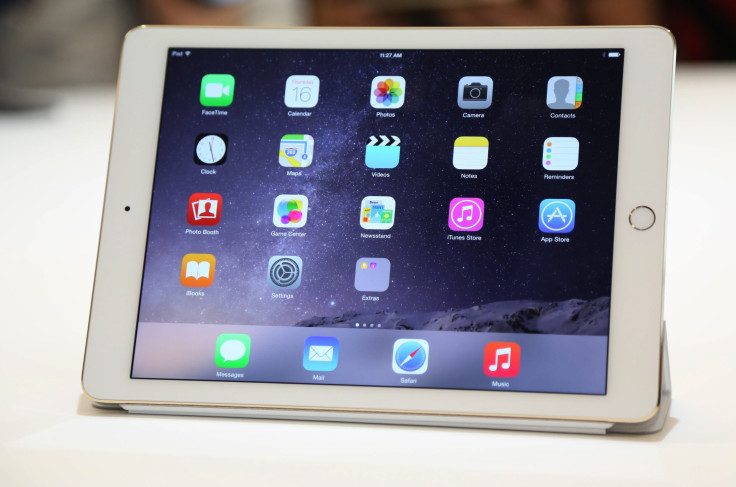Apple iPad Pro May Use Oxide LCD Display For Lower Power Consumption

Increasing a device's screen size comes with a big downside: increased power consumption. But Apple Inc. may be able to avoid that entirely by using a different type of LCD technology in its next iPads.
The company is expected to use oxide TFT (thin film transistor) LCD displays in its next iPads, including the so-called 12.9-inch “iPad Pro,” as well as future iMacs, Korean IT publication ETNews reported Monday. In response, LG Display is increasing its production capacity for oxide TFT panels from 9,000 panels a month to at least 30,000, to match the current manufacturing capacity of Sharp’s display unit. By mid-2016 LG’s capacity is expected to reach 50,000 panels a month.
In addition to LG, Apple may also recruit Sharp and Samsung Electronics to help produce displays for its next iPads. Samsung is also aiming to increase its capacity from 20,000 panels to 60,000 a month by the end of the year.
Oxide LCD displays, also known as IGZO (indium, gallium, zinc, oxygen) has a number of benefits over the IPS display technology used in the iPad Air 2 and iPad Mini 3, including using as much as 90 percent less power, higher resolution screens, faster touch response time and higher color saturation, Sharp said. Using such technology would enable Apple to produce its larger iPad, without taking a huge hit to battery life due to the display.
Apple’s iPad Pro, which has been the subject of rumors since last year, was originally slated to begin production in December, but demand for the latest iPhones pushed the Pro back into 2015. While the iPad Pro was expected to debut during the Apple Watch event in March, the company pushed it back even further to September, in part due to supply chain problems involving its displays, Bloomberg reported.
Apple may also be working to bring an 8K resolution iMac to market later this year, according to a blog post published by LG Display last week. The validity of the claim is being called into question since the company has not officially made such statements about a future iMac. Apple declined to comment.
© Copyright IBTimes 2024. All rights reserved.





















